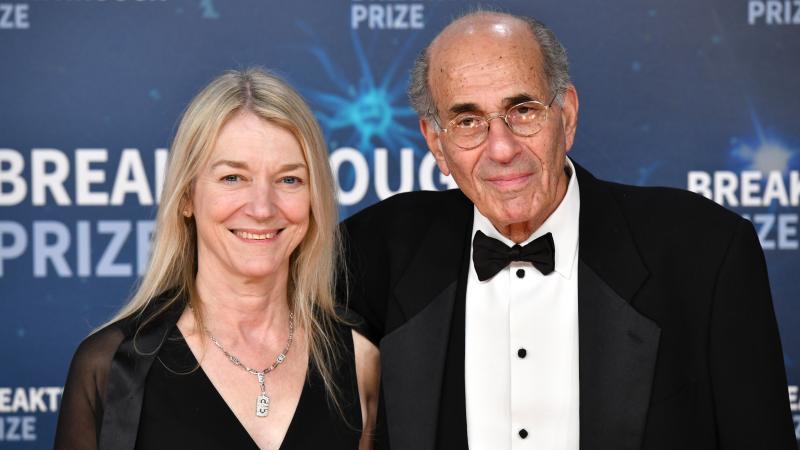1619 Project contributors say conservatives threatened by its appeal to average Americans
Black columnist compares it to "History of the Negro in America" book his working-class grandfather owned. "It isn't an elite imposition."
The New York Times' 1619 Project and its associated materials that seek to "reframe" America's founding around slavery have provoked such a severe backlash because its ideas are popular beyond black elites and academics, according to contributors to its new book-length collection of essays, subtitled "A New Origin Story."
They participated in a "book club" event Wednesday with Washington, D.C. public radio veteran Diane Rehm. Missing from the discussion: the project's founder and most polarizing figure, Pulitzer Prize-winning journalist Nikole Hannah-Jones, even though she teaches at D.C.'s Howard University.
Times columnist Jamelle Bouie, who is black and also contributed to the original 2019 magazine issue, compared the project to the 1962 book "Beyond the Mayflower: A History of the Negro in America 1619-1962."
His grandfather, a railroad worker, owned a copy of that book despite a relative lack of education. Members of the black working class "have been having [these conversations] for a long time," Bouie said. "My hunch is that, judging from sales numbers," the project is "part of the discourse among ordinary African Americans. It isn't an elite imposition."
"You don't try to ban things that nobody is paying attention to except historians," said Jake Silverstein, the magazine's editor, apparently referring to fights over the project's school curriculum, which is hosted by the Pulitzer Center.
Johns Hopkins University historian Martha Jones, who joined the project for the book and has admitted hiding her half-white identity well into her academic career, said she was "deeply moved" to see 200 educators attend her Saturday afternoon keynote at the center's 1619 Project Education Conference.
The book is "doing more work than simply fueling academic debates," and yet it's not accurate to characterize the audience as a monolith that agrees with every point, Jones said. These weren't conversations she was having with her own department colleagues.
They discussed critical race theory in the context of Texas Lt. Gov. Dan Patrick's recent proposal to strip tenure from new University of Texas hires who teach CRT, which informs the 1619 Project, in response to the UT Faculty Council's resolution against political meddling in curriculum.
One of the most frequent responses to Jones' presentations is "'I didn't learn this in school,'" she claimed. The UT history department is "helping us to undo the suppression and frankly the indoctrination" that these students experienced in school, Jones said.
The anti-CRT backlash is "strongly felt" but not broad, Bouie claimed. The large numbers participating in protests against George Floyd's killing, Confederate statues and other memorials to people "long held in esteem" shows a critical mass eager to "re-engage with and recontextualize the nation's history."
They are not embracing "anti-Americanism" but rather seeking to "sit with the ugliness of the past" and let it inform policy choices, such as a more activist government to tackle chronic black unemployment, Bouie said.
"The ferocity with which conservative lawmakers are approaching this does not make sense" unless they also recognize the "real sea change" in Americans' attitudes toward racial history, he said.
The language of anti-CRT legislation looks "really reasonable," preventing students from being taught race-based inferiority, but it "doesn't quite make sense in the real world," Silverstein said. Colorblind arguments can't withstand decades of discrimination against blacks, and society can't "turn on a dime" to treat everyone equally.
Hannah-Jones' absence meant her colleagues had to characterize how the project founder responded to criticism from prominent historians — including the special issue's fact-checker — for certain claims.
Her leading essay claimed that protecting slavery was "one of the primary reasons the colonists decided to declare their independence from Britain." Several months later, the magazine changed the sentence to read "some of the colonists."
Jones said she believes Hannah-Jones had "taken counsel" in response to criticism about a "small" but "consequential" part of her essay.
"We recognized after the fact there was imprecision" to the flagged sentence, implying the colonists were a "unified, homogeneous mass," Silverstein said.
But Hannah-Jones was making the point that American "mythology" left out alternate motivations for independence, reducing it to a "purely heroic act," he said. She added more evidence in support of the pro-slavery motivation for independence in various parts of the colonies for the book, according to Silverstein.
The Facts Inside Our Reporter's Notebook
Links
- A New Origin Story
- Beyond the Mayflower: A History of the Negro in America 1619-1962
- hosted by the Pulitzer Center
- hiding her half-white identity
- 1619 Project Education Conference
- Dan Patrick's recent proposal
- UT Faculty Council's resolution
- criticism from prominent historians
- special issue's fact-checker
- magazine changed
- some of the colonists
















